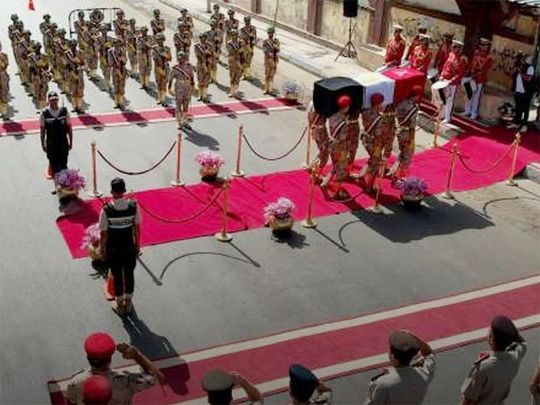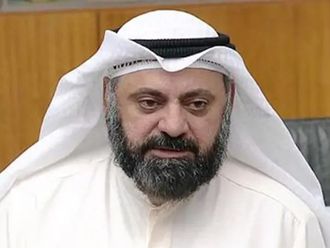
Cairo: The Egyptian army held a military funeral for a soldier whose remains were recently found in the Sinai Peninsula after he went missing during the 1967 war against Israel.
The remains of the soldier, identified as Fawzy Abdul Muwla, were discovered by chance along with some personal belongings and his identification papers by a civilian company working in central Sinai, the battleground of the 1967 war, according to Egyptian media.
DNA tests conducted on the remains and the soldier's younger brother confirmed his identity. He was buried in the family's tomb in Al Dekheila, west of Alexandria. A family member recounted how it all began.
"I was browsing Facebook about two months ago when I stumbled upon a page announcing that the body of a martyr from the 1967 war had been found," his nephew Mohammad said. Curious, he checked the story and the posted photos. "I saw that my father appeared in some of these photos," Mohammad told the semi-official Al Ahram newspaper.
He brought the matter to his father's attention, initiating contact between the family and the army, who informed them that the remains were being kept at a military hospital in the coastal city of Suez.
In recognition of his service, the army staged a military funeral for him Thursday in his Mediterranean hometown, Alexandria.
The remains were placed inside a coffin draped in the Egyptian flag as a salvo of shots was fired and a military band played in his honour.
Born in January 1945, Fawzy joined the Egyptian army in 1964 and was sent to Yemen to fight before returning to Egypt to fight in the 1967 war.
His messages to the family have since stopped after they were notified that he was deemed missing in action.
On June 5, 1967, Israeli warplanes bombed Egypt’s grounded fighter jets and destroyed airbases. The Israeli attack also stripped Egypt of its Sinai territory and brought Israeli troops to the banks of the Suez Canal, a major waterway connecting the Mediterranean Sea and the Red Sea.
The defeat dealt a shattering blow to the leadership of Egypt’s charismatic president Jamal Abdul Nasser.
Three years after Abdul Nasser died in 1970, Egypt under his successor Anwar Al Sadat launched a surprise attack against Israel that enabled Cairo to regain parts of Sinai.
In 1979, Egypt became the first Arab country to sign a peace treaty with Israel.











